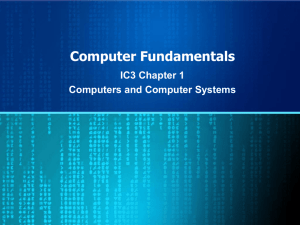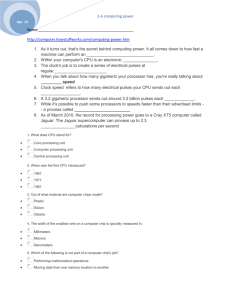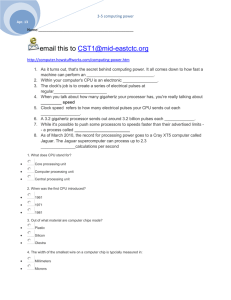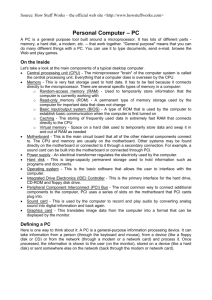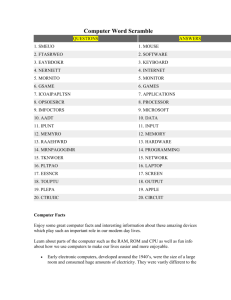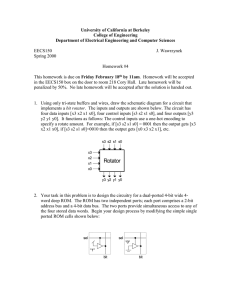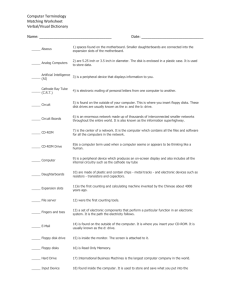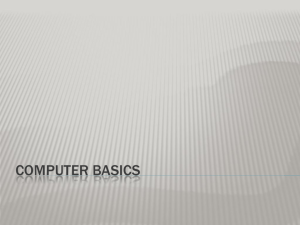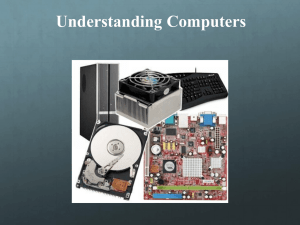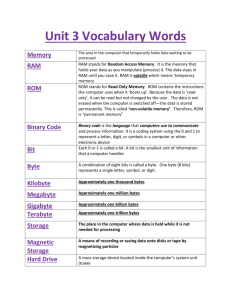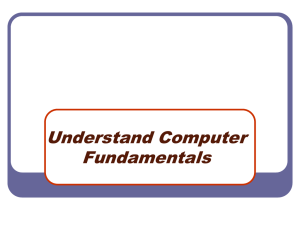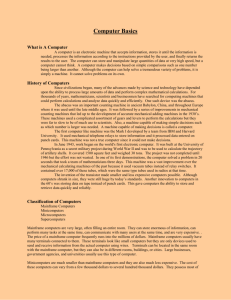Chapter 4--Practice Quiz
advertisement
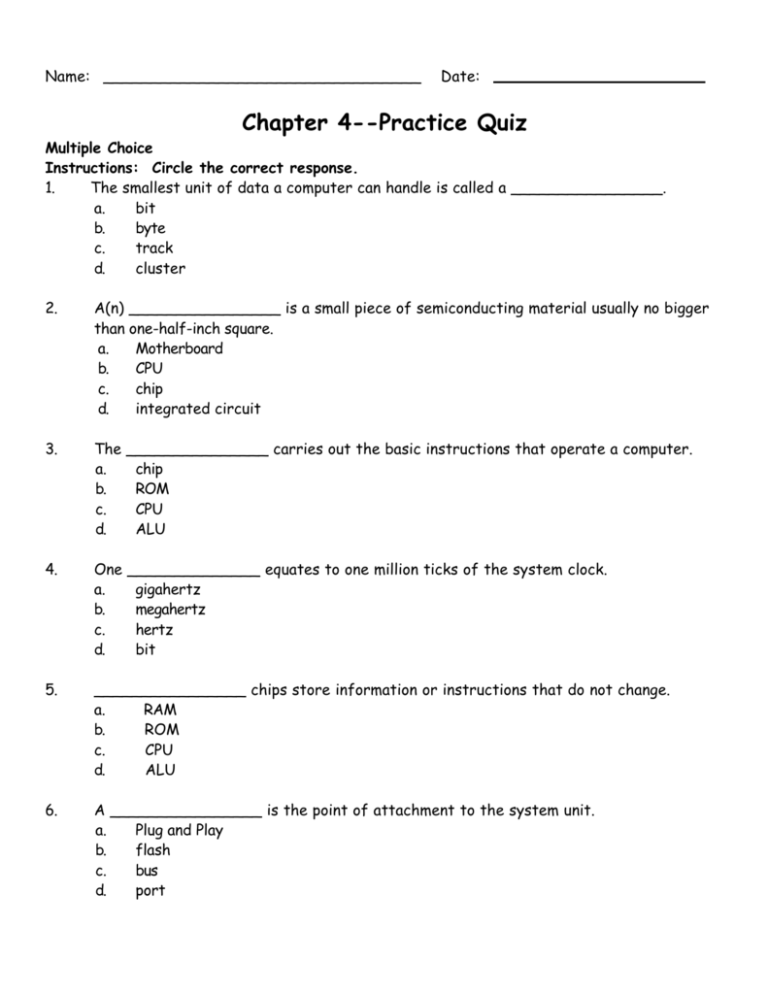
Name: _________________________________ Date: Chapter 4--Practice Quiz Multiple Choice Instructions: Circle the correct response. 1. The smallest unit of data a computer can handle is called a ________________. a. bit b. byte c. track d. cluster 2. A(n) ________________ is a small piece of semiconducting material usually no bigger than one-half-inch square. a. Motherboard b. CPU c. chip d. integrated circuit 3. The a. b. c. d. _______________ carries out the basic instructions that operate a computer. chip ROM CPU ALU 4. One a. b. c. d. ______________ equates to one million ticks of the system clock. gigahertz megahertz hertz bit 5. ________________ chips store information or instructions that do not change. a. RAM b. ROM c. CPU d. ALU 6. A ________________ is the point of attachment to the system unit. a. Plug and Play b. flash c. bus d. port 7. Input can be categorized into which of the follow types? a. Data b. Commands c. Programs d. All of the above 8. A ________________ is a freestanding computer that provides information to a user. a. kiosk b. scanner c. PDA d. CD/ROM 9. A ________________ is a duplicate of a file or program that can be used if the original is damaged or destroyed. a. sector b. backup c. track d. format 10. A(n) ________________ is a type of storage medium that consists of a flat, round, portable disk made of metal, plastic, and lacquer that is written and read by a laser. a. diskette b. hard drive c. optical disk d. kiosk True/False Instructions: Circle T if the statement is true or F if the statement is false. 11. T F Most computers are analog, meaning that they understand only two discrete states: on and off. 12. T F A chip and an integrated circuit are interchangeable terms. 13. T F In the machine cycle, storing is the process of writing the result to memory. 14. T F The system clock is used to synchronize and control the timing of all computer operations. 15. T F ROM is volatile, so programs and data stored in ROM are erased when power to the computer is turned off. 16. T F Flash memory is a type of nonvolatile memory that can be erased electronically and rewritten on. 17. T F Input is data that has been processed into a useful form called information. 18. T F Audio output is any music, speech, or other sound produced by a computer. 19. T F Tracking is the process of preparing a disk for reading and writing. 20. T F 1CDs and DVDs are optical discs, with DVDs having a much greater storage capacity than CDs. Short Answer Instructions: Fill in the best answer. 21. The _______________ is a box like case that houses the electronic components a computer uses to process data. 22. Eight bits grouped together as a unit is called a(n) _______________. 23. Many of the electronic components in the system unit reside on a circuit board called the _______________. 24. A(n) _______________ is an opening, or socket, where a circuit board can be inserted into the motherboard. 25. The _______________ port can connect up to 127 different peripheral devices with a single connector type. 26. A(n) _______________ is any hardware component that allows you to enter data, programs, commands and user responses into a computer. 27. A(n) _______________, also called a mouse, is an input device that allows you to control a pointer on the screen. 28. A(n) _______________ is a display device that is housed in a metal or plastic case and is available in a variety of sizes,. 29. A(n) _______________ , or floppy disc, is a portable, inexpensive storage medium that consists of a thin, circular, flexible plastic disk with a magnetic coating enclosed in a square shaped plastic shell. 30. A(n) _______________ is similar in size to a credit card and stores data on a thin microprocessor embedded in the card.
